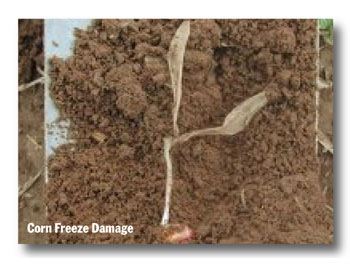Keep The Brakes On Planting A Little Longer
LEXINGTON, KY.
Record and near record warm temperatures
have many corn producers jumping at the
chance to get out in the field and plant
corn, but it may be best to wait a little longer,
said Chad Lee, extension grain crops specialist
with the University of Kentucky College of Agriculture.
Historically, producers in Western Kentucky
have started planting corn around April 1, and
Central and Eastern Kentucky producers begin
to plant between April 10-15.
Because of the warm weather, many farmers
have readied their fields for this growing season,
spraying burndown herbicides and applying anhydrous
ammonia earlier-than-normal. Planting
is all that’s left for many producers. In
addition to the weather, Lee said producers
vividly remember spring 2011 when flooding
and continuous rain seriously delayed corn and
soybean planting and would like to get this crop
in the ground in case history repeats itself.
According to the National Climate Data Center,
the vast majority of the state has a 90-percent
chance of experiencing its last freeze after
April 1. If this event occurs, young corn
seedlings could be severely damaged or killed.
For Lee and others who follow Kentucky
weather, this warm weather pattern is reminiscent
of 2007 when the state had two weeks in
late March with highs above 70 degrees. In
early April of that year, low temperatures did
not get above 20 degrees for five or six days.

“Corn planted the last two weeks of March
2007 emerged in less than seven days, grew
rapidly and was no match for the cold weather,”
Lee said. “Farmers replanted 100,000 acres or
more of corn that year.”
Producers may want to consult their crop insurance
agent to see what their early planting
date is, which is the date their full insurance
benefits become active. For much of the state,
that date is April 1.
“If you plant before the earliest planting date,
those acres are not eligible for crop insurance
replant payments,” said Cory Walters, UK agricultural
economist. Δ